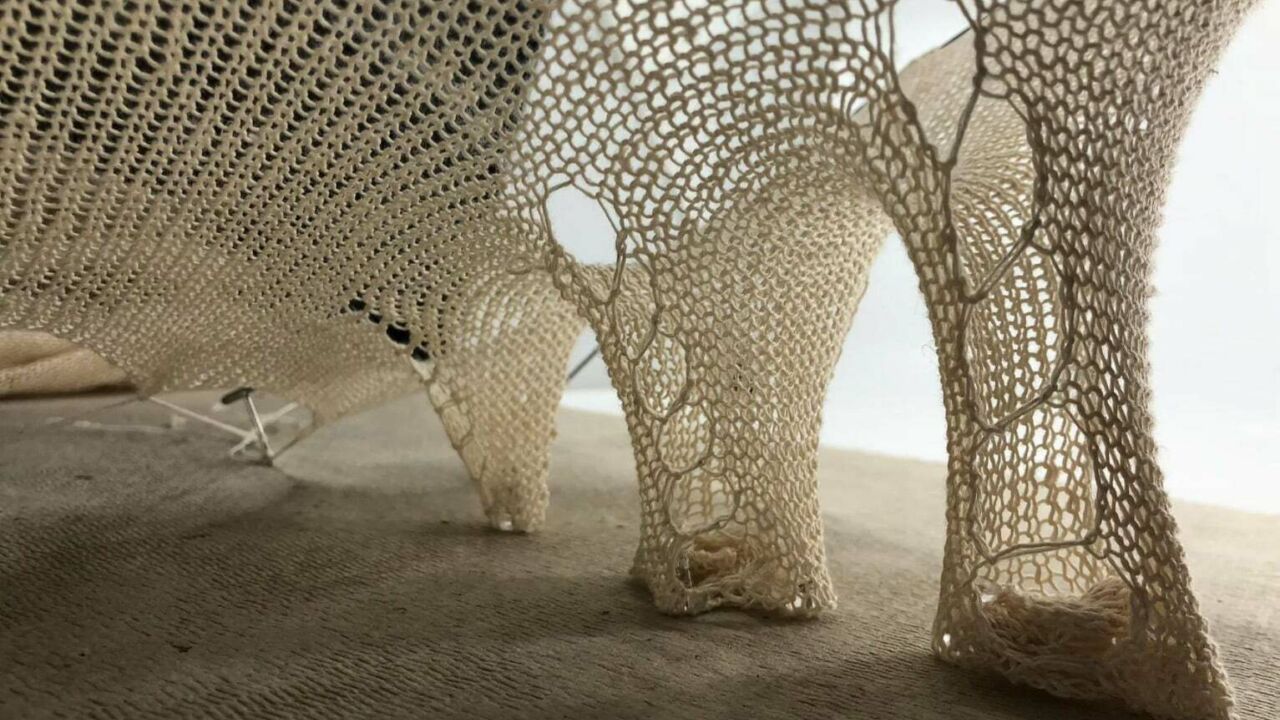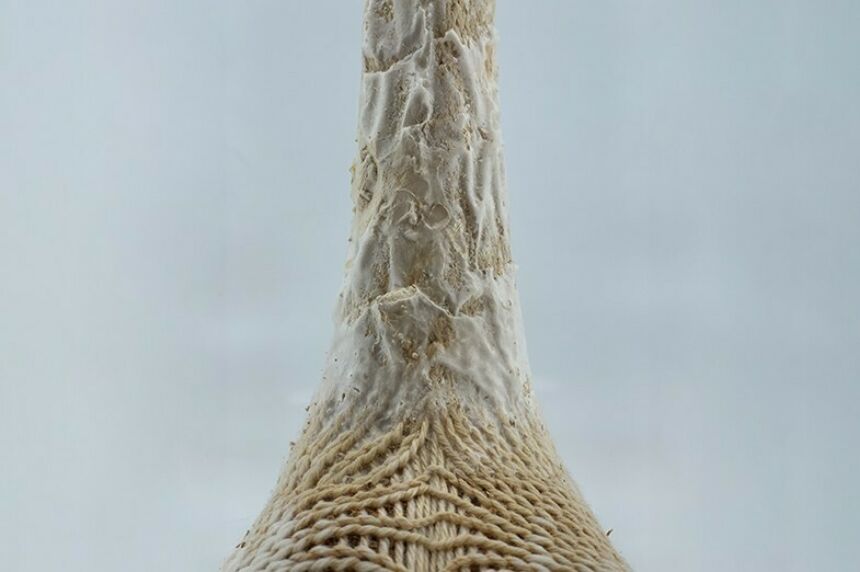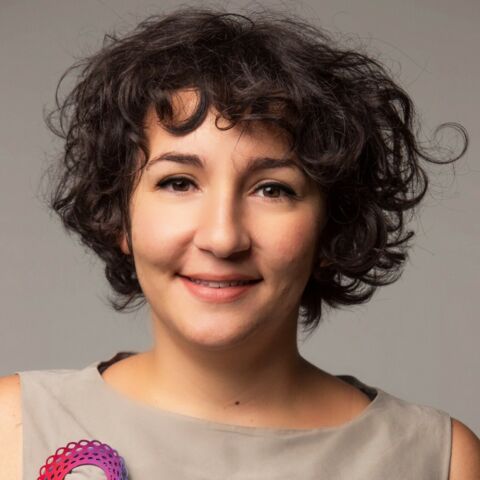
Led co-PIs Felecia Davis and Benay Gürsoy, the project explores using mycelium-based and knitted textiles to form a sustainable building material. The creation of “MycoKnit” as a concept began through a collaboration between Davis’ SOFTLAB and Gürsoy’s ForMat Lab.
Fully titled “MycoKnit: Cultivating Mycelium-Based Composites on Knitted Textiles for Large-Scale Biodegradable Architectural Structures,” the project brings together materials that were developed by Davis and Gürsoy and their respective research teams to create a lightweight material for biodegradable architectural structures.
Davis, and Farzaneh Oghazian had been researching knitted patterns and materials for knitted tension structures. Oghazian was developing digital algorithms and machine-learning tools to simulate the shape and behaviors of knitted tension structures. Andre West at NC State University has been working with Davis and Oghazian to produce industrially manufactured knitted samples to test scaling up the work for large-scale tension structures.
Penn State students Ian Danner, an arts education graduate student, and Sophia Craparo, a materials science undergraduate, are assisting with the creation of hand-machined, knitted prototypes and structures for the knitted-base fabric of the MycoKnit.
Ali Ghazvinian, a researcher in the ForMat Lab, has been working with Gürsoy on mycelium-based composites and how they can be used in building structures. John Pecchia, director of the Mushroom Research Center, has been working alongside ForMat lab researchers to cultivate the mycelium-based composites.
According to Davis, the collaboration allows the team to develop design and fabrication workflows for MycoKnit, which are lightweight and biodegradable composite structures. The two materials – knit fabric and mycelium – work together to form a tightly meshed composite that has tension from the knitted base and compression from the dried mycelium fungus. The combination can make a strong and lightweight building material.
Both materials, which were created individually by SOFTLAB and ForMat Lab, respectively, work together
“In this research, we will be experimenting growing mycelium-based composites on textiles knitted with organic yarns,” said Gürsoy. “Mycelium will decompose and bind these yarns as it grows, creating a composite system that benefits from both the compressive strength of mycelium and tensile strength of the textiles.”
Gallery



